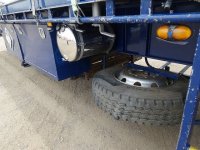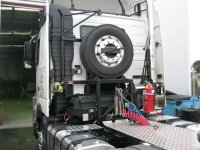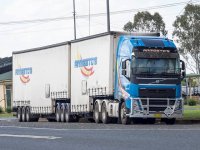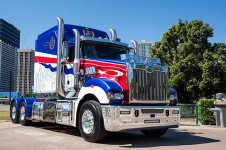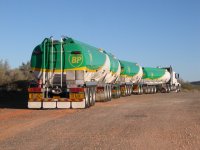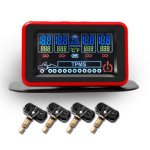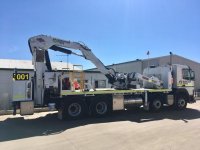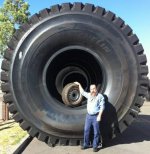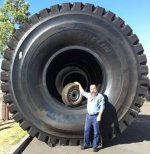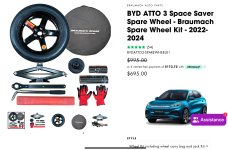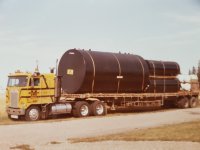Absolutely perfect my leader.
I have some great ideas about rocket launchers already.
Trucks still carry spare tyres Brian, and they are usually mounted on the trailer if a prime mover set up, or under the side of the truck body if a rigid.
View attachment 7461
Or some carry them on the back of prime movers like this.
View attachment 7462
The biggest problem is handling them, they can weigh up to 130kg, so getting one off the back of a prime mover can be a challenge without damaging things, or yourself.
If you get to the stage of actually changing the wheel, the wheel nuts are tensioned on some vehicles up to 380 lb ft torque (a normal car may be around 25-40 lb ft) so there is another huge challenge. Some drivers Cary up to 10 feet of bars and extension bars to undo these nuts, which on bigger trucks there are 10 of them for each wheel.
Most fleets these days do not allow the drivers to change flats anymore, as they usually have a contract with a major tyre company that covers all tyres and any breakdowns due to tyre faults, but not flats due to something damaging a tyre resulting in a blow out. The customer pays for the tyre, but the breakdown fee is covered by their contract with the tyre company.
The tyre companies have all the tools to handle these tyres, air bag jacks that can lift over 50 tons, and air tools that will have the 10 studs undone in under a minute.
Then tension wrenches rated up to 400 lb ft that are over 8 ft long.
I know of a very large fleet that pays $1 per day for each tyre on their trucks that covers the tyre warranty for the life of the tyre, any breakdowns by the side of the road, and weekly inspections at the depot where all tyres are inspected on every truck every week.
But when the truck looks like this.
View attachment 7463
That is $34 per day which is $238 per week or $12,376 per year.
This fleet has over 450 B Double rigs like the one above, so that’s over $5.5 million a year, big business.
As per your ride during your 50 year tenure as Dictator
We did this one off Mack for the Sultan of Johor.
View attachment 7464
https://paultan.org/2015/10/15/sult...iled-in-brisbane-its-the-most-expensive-ever/
I am sure we could come up with something better for a Supreme Dictator



